24 start with A start with A
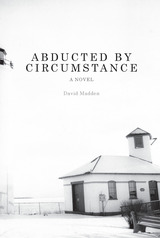
“Abducted by Circumstance is a thrilling crime story, a dark and complex psychological study, a rich contemplation on contemporary life. It is also a masterful moral drama about the centuries-old conflicts that arise from the juxtaposition of the flesh and spirit.”
—Allen Wier, author of Tehano
“David Madden continues to push the envelope of literary fiction in subtle and profoundly sophisticated ways. Abducted by Circumstance is a quirky, utterly compelling novel in pieces that in its very structure speaks to the work’s twenty-first-century theme: how do we find connection in a fragmented world? In this new book Madden is at the height of his considerable power.”
—Robert Olen Butler
In Abducted by Circumstance, David Madden offers his readers a unique experience simultaneously terrifying and exhilarating.
Carol Seaborg makes a risky visit in zero weather to a lighthouse near her house in The Thousand Islands of New York on the Canadian border. A self-confident, attractive woman of about 55 suddenly appears on the observation deck looking out over frozen Lake Ontario. Carol admires the woman as her ideal.
Suddenly, the woman disappears, apparently abducted by a serial rapist and killer, stimulating in Carol an immediate empathy that, enhanced by the power of her imagination, is so great as to make her unique. Carol projects her own emotions, imagination, and intellect into Glenda’s experience.
To render that empathy and imagination, Madden channels everything that the people around her say and do through Carol’s perceptions so intimately that he shifts frequently and without transition into her thoughts, which focus mostly on the abducted woman, whose name newscasters reveal is Glenda Hamilton.
As Carol imagines Glenda gradually coping with her abductor, she speaks directly, sometimes out loud, to her, encouraging her, advising her, expressing fear for her.
If Carol’s external experiences are passive almost to paralysis, her memories reveal that her life has been full of more venturesome relationships and events (she once rode across Greece alone on a bicycle) than most wives and mothers in their late thirties have. Carol’s emotions and imagination are highly charged and exquisitely presented.
The circumstances and relationships of her past and present predispose Carol to empathize with Glenda. Carol’s own life among a crude, remote second husband, a somewhat estranged adolescent son, a bright five-year-old daughter, a father who is a rather cold philosophy teacher, and the strong spiritual presence of her mother who committed suicide, is simple and routine. The events involving Glenda’s disappearance take place during the week before Carol’s second surgery for breast cancer.
Gradually, as she takes late night drives with her little girl, visits her ex-boyfriend’s father in a nursing home, drives by her ex-lover’s house and business, and visits the campus where her father is a prominent teacher, the reader realizes, some pages before Carol herself does, that she has been abducted by the circumstances of her life.
Although it is grounded in the realistic detail of everyday life, Abducted by Circumstance is unique in conception, style, and characterization. Madden immerses the reader in an extraordinarily rich and unforgettable psychological experience.
Thoroughly absorbing from start to finish, Abducted by Circumstance explores Carol’s troubled psyche with the rare precision and insight that have long distinguished David Madden’s fiction.
Since 1961, each of David Madden’s highly praised novels and two books of short stories has had some quality of uniqueness, among them Cassandra Singing, Sharpshooter: A Novel of the Civil War, Bijou, and The Suicide’s Wife. Twice nominated for the Pulitzer Prize, David Madden received the Robert Penn Warren Award from the Fellowship of Southern Writers.

Magicians and misdirection, gambling, down-on-one’s-luck, the crazed sense of possibility and impossibility, mistaken identity, impersonators and body doubles, people acting bizarrely with all sorts of chaos, collisions, and overlaps thrown in for good measure. Again and again the reader is swept into treacherous waters, always confident that the writer is in control of his material. Because the many twists and turns the plot takes are all but impossible to anticipate, the experience of reading Abracadabra is deliciously magical.
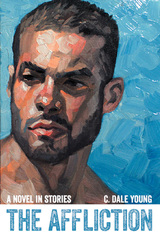
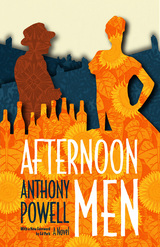
More explorations of relationships and vanity than plot-driven narratives, Powell’s early works reveal the stirrings of the unequaled style, ear for dialogue, and eye for irony that would reach their caustic peak in his epic, A Dance to the Music of Time.
In Afternoon Men, the earliest and perhaps most acid of Powell’s novels, we meet the museum clerk William Atwater, a young man stymied in both his professional and romantic endeavors. Immersed in Atwater’s coterie of acquaintances—a similarly unsatisfied cast of rootless, cocktail-swilling London sophisticates—we learn of the conflict between his humdrum work life and louche social scene, of his unrequited love, and, during a trip to the country, of the absurd contrivances of proper manners.
A satire that verges on nihilism and a story touched with sexism and equal doses self-loathing and self-medication, AfternoonMen has a grim edge to it. But its dialogue sparks and its scenes grip, and for aficionados of Powell, this first installment in his literary canon will be a welcome window onto the mind of a great artist learning his craft.
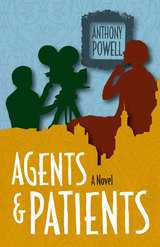
In Agents and Patients, we return to London with the newly wealthy, memorably named Blore-Smith: an innocent, decent enough chap . . . and a drip. Vulnerable to the machinations of those with less money and more lust, Blore-Smith falls victim to two con artists whose ploys carry him through to the art galleries and whorehouses of Paris, Berlin, and beyond.
Written from a vantage point both high and necessarily narrow, Powell’s early novels nevertheless deal in the universal themes that would become a substantial part of his oeuvre: pride, greed, and what makes people behave as they do. Filled with eccentric characters and piercing insights, Powell’s work is achingly hilarious, human, and true.
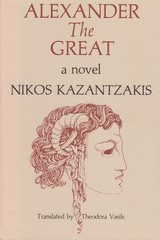
Nikos Kazantzakis is no stranger to the heroes of Greek antiquity. In this historical novel based on the life of Alexander the Great, Kazantzakis has drawn on both the rich tradition of Greek legend and the documented manuscripts from the archives of history to recreate an Alexander in all his many-faceted images—Alexander the god; Alexander the descendant of Heracles performing the twelve labors; Alexander the mystic, the daring visionary destined to carry out a divine mission; Alexander the flesh-and-blood mortal who, on occasion, is not above the common soldier’s brawling and drinking.
The novel, which resists the temptation to portray Alexander in the mantle of purely romantic legend, covers his life from age fifteen to his death at age thirty-two. It opens with Alexander’s first exploit, the taming of the horse, Bucephalas, and is seen in great part through the eyes of his young neighbor who eventually becomes an officer in his army and follows him on his campaign to conquer the world.
The book, which was written primarily as an educational adjunct for young readers, is intended for the adult mind as well, and like the legends of old, is entertaining as well as instructive for readers of all ages. It was originally published in Greece in serial form in 1940, and was republished in a complete volume in 1979.
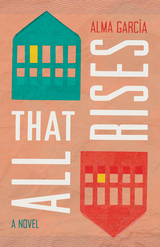
What follows is a story in which mysteries are unraveled, odd alliances are forged, and the boundaries between lives blur in destiny-changing ways—all in a place where the physical border between two countries is as palpable as it is porous, and the legacies of history are never far away. There are no easy solutions to the issues the characters face in this story, and their various realities—as undocumented workers, Border Patrol agents, the American supervisor of a Mexican factory employing an impoverished workforce—never play out against a black-and-white moral canvas. Instead, they are complex human beings with sometimes messy lives who struggle to create a place for themselves in a part of the world like no other, even as they are forced to confront the lives they have made.
All That Rises is about secrets, lies, border politics, and discovering where you belong—within a family, as well as in the world beyond. It is a novel for the times we live in, set in a place many people know only from the news.
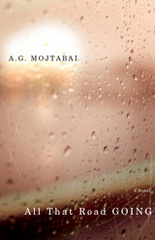
In the middle of the night, somewhere in Oklahoma—or is it Missouri?—a bus hurtles down an anonymous American highway. Its passengers, among them two children traveling on their own, a retired salesman, an unwed teenage mother, an unemployed chemist, and the driver who ferries and broods over all of them, are in the middle of their journeys. Soon, two of the passengers will be lost, and then the bus itself will lose its way.
The open road and, before that, the open frontier have long been part of the American romance, cherished features of the nation's traditional vision of itself. In her latest novel, A. G. Mojtabai stands this tradition on its head. Instead of the expansive thrust into unknown territory, the camaraderie of the open road, adventure, and the joys of vagabondage, we witness constriction, isolation, and fear. Instead of freedom, we find people fleeing from coast to coast in search of home and the ever-beckoning, ever-retreating promise of a better life. Richly drawn, evocative, and thought-provoking, All That Road Going is a challenging new departure from the road novel canon.
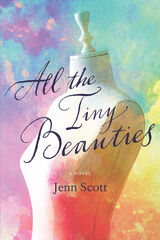
All the Tiny Beauties begins with a kitchen fire that sends the reclusive Webster Jackson to the home of his new neighbor, Colleen, who discovers him on her doorstep wearing a lacy peignoir, his house in flames. Unwilling to take responsibility for the lonely eccentric, Colleen reaches out to Webb’s estranged daughter, Debra. She also helps him find a live-in companion, a young adult reeling from the loss of her childhood friend.
Moving among perspectives and generations, we see the longings and vulnerabilities that drive and impede these characters as their stories intertwine—Webb’s first love clashing with his last; Colleen embarking on a secret affair with Debra; the older Webb and his young housemate, Hannah, forming a bond over tragedy, guilt, and his passion for baking.
Confronting the many ways they’ve failed others as well as themselves, Webb, Colleen, Hannah, and Debra slowly find ways forward and ways out. While exploring the fragile nature of our connections to one another, All the Tiny Beauties asks larger questions about the constraints society imposes that warp and wound, leading us to deny those things that make us wholly ourselves.

Traveling through China in 1989, not long after the Tiananmen Square massacre, Fanny hopes to make sense of her brother Bruno’s death in a motorcycle accident by finding a woman with whom he had exchanged letters. On her journey Fanny’s fate becomes entwined with a handsome British rogue, an American of Russian-Cuban descent returning to Tashkent, and two Chinese men—one who loves Charles Dickens, the other a budding, entrepreneurial con man—struggling to find their way in a country undergoing tumultuous transformation. Kathleen Lee’s debut novel explores the tension between the allure of the unfamiliar that draws us to distant lands and its unbidden tendency to reveal us to ourselves. With its rollicking sense of humor and slyly lyrical voice, as well as an extraordinary deftness in the rendering of place, All Things Tending towards the Eternal is an unforgettable ride.
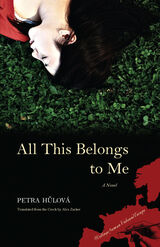
Winner of the American Literary Translators Association 2010 National Translation Award
Petra Hůlová became an overnight sensation when All This Belongs to Me was originally published in Czech in 2002, when the author was just twenty three years old. She has since established herself as one of the most exciting young novelists in Europe today. Writings from an Unbound Europeis proud to publish the first translation of her work in English.
All This Belongs to Me chronicles the lives of three generations of women in a Mongolian family. Told from the point of view of a mother, three sisters, and the daughter of one of the sisters, this story of secrets and betrayals takes us from the daily rhythms of nomadic life on the steppe to the harsh realities of urban alcoholism and prostitution in the capital, Ulaanbaatar. All This Belongs to Me is a sweeping family saga that showcases Hůlová's genius.
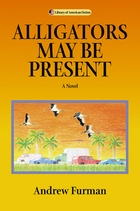
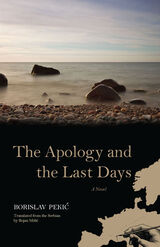
Originally published in 1975, The Apology and the Last Days is the final volume in a trilogy of novels—also including The Rise and Fall of Icarus Gubelkian and How to Quiet a Vampire—about the aftermath of World War II, by Borislav Pekić, one of the former Yugoslavia’s most important postwar writers. The narrator tells his story from prison, where he is serving time for the murder of a former Nazi official. As the novel unfolds, we learn that the victim was the same person whom the narrator, while a lifeguard during the war, saved from drowning, thus making him vulnerable to charges of collaboration. In this tragicomic tale, Pekić explores eternal questions of fate and individual responsibility.

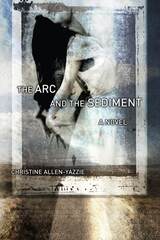
This tale, though dark and difficult, is infused with tart, twisted humor. Confused, disheveled, self-deprecating, and self-destructive, Gretta is also sharp and funny. Here, first-time novelist Christine Allen-Yazzie breaks apart her own narrative arc but with gritty reality seals it near-shut again, if in rearrangement, drawing us into Gretta's wrestling match with herself, her husband, her addiction, and the road.
The Arc and the Sediment received an honorable mention from the James Jones First Novel Competition, and it won the Utah Arts Council Annual Writing Competiton Publishing Prize.
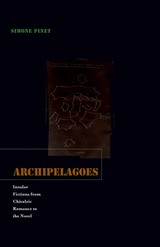
Pinet looks closely at Amadís de Gaula and the Liber insularum archipelagi as the first examples of these genres. Both isolario and chivalric romance (libros de caballerías) make of the island a flexible yet cohesive framework that becomes intrinsic to the construction of their respective genres. The popularity of these forms throughout the seventeenth century in turn bears witness to the numerous possibilities the archipelagic structure offered, ultimately taken up by the grand genres of each discipline—the atlas and the novel.
Moving from verbal descriptions to engravings and tapestry weavings, and from the chivalric politics and ethics proposed in the Amadís de Gaula to the Insula Barataria episode in Don Quixote, Pinet’s analysis of insularity and the use of the island structure reveals diverging roles for fiction, illuminating both the emergence of the novel and contemporary philosophical discussion on fiction.
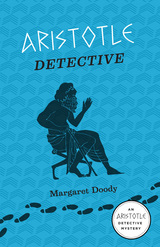
In Aristotle Detective, we first meet Stephanos—naive Watson to Aristotle’s learned Holmes—a young landed Athenian and student of Aristotle. With the aid of his cunning, olive-loving teacher, Stephanos must clear his exiled cousin of murder and save his family’s honor in a tense public trial. Will Stephanos survive to cinch the case?
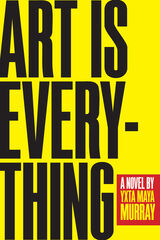
In her funny, idiosyncratic, and propulsive new novel, Art Is Everything, Yxta Maya Murray offers us a portrait of a Chicana artist as a woman on the margins. L.A. native Amanda Ruiz is a successful performance artist who is madly in love with her girlfriend, a wealthy and pragmatic actuary named Xōchitl. Everything seems under control: Amanda’s grumpy father is living peacefully in Koreatown; Amanda is about to enjoy a residency at the Guggenheim Museum in New York and, once she gets her NEA, she’s going to film a groundbreaking autocritical documentary in Mexico.
But then everything starts to fall apart when Xōchitl’s biological clock begins beeping, Amanda’s father dies, and she endures a sexual assault. What happens to an artist when her emotional support vanishes along with her feelings of safety and her finances? Written as a series of web posts, Instagram essays, Snapchat freakouts, rejected Yelp reviews, Facebook screeds, and SmugMug streams-of-consciousness that merge volcanic confession with eagle-eyed art criticism, Art Is Everything shows us the painful but joyous development of a mid-career artist whose world implodes just as she has a breakthrough.
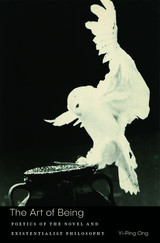
The Art of Being is a powerful account of how the literary form of the novel reorients philosophy toward the meaning of existence. Yi-Ping Ong shows that for Kierkegaard, Sartre, and Beauvoir, the form of the novel in its classic phase yields the conditions for reconceptualizing the nature of self-knowledge, freedom, and the world. Their discovery gives rise to a radically new poetics of the nineteenth- and twentieth-century realist novel.
For the existentialists, a paradox lies at the heart of the novel. As a work of art, the novel exists as a given totality. At the same time, the capacity of the novel to compel belief in the free and independent existence of its characters depends on the absence of any perspective from which their lives may be viewed as a consummated whole. At stake in the poetics of the novel are the conditions under which knowledge of existence is possible. Ong’s reframing of foundational debates in novel theory takes us beyond old dichotomies of mind and world, interiority and totality, and form and mimesis. It illuminates existential dimensions of novelistic realism overlooked by empirical and sociological approaches.
Bringing together philosophy, novel theory, and intellectual history with groundbreaking readings of Tolstoy, Eliot, Austen, James, Flaubert, and Zola, The Art of Being reveals how the novel engages in its very form with philosophically rich notions of self-knowledge, freedom, authority, world, and the unfinished character of human life.
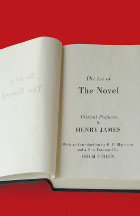
This collection of prefaces, originally written for the 1909 multi-volume New York Edition of Henry James’s fiction, first appeared in book form in 1934 with an introduction by poet and critic R. P. Blackmur. In his prefaces, James tackles the great problems of fiction writing—character, plot, point of view, inspiration—and explains how he came to write novels such as The Portrait of a Lady and The American. As Blackmur puts it, “criticism has never been more ambitious, nor more useful.”
The latest edition of this influential work includes a foreword by bestselling author Colm Tóibín, whose critically acclaimed novel The Master is told from the point of view of Henry James. As a guide not only to James’s inspiration and execution, but also to his frustrations and triumphs, this volume will be valuable both to students of James’s fiction and to aspiring writers.
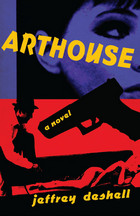
From film to film, Jeffrey DeShell follows a forty-something failed film studies academic—The Professor. While The Professor is reinvented with each new chapter (or film), what remains is DeShell’s inventive deconstruction and representation of modern cinema. At times borrowing imagery, plot, or character elements, and at times rendering lighting, rhythm, costuming, or shot sequences into fictional language, The Professor’s journey sends him from the Southwestern town of Pueblo, Colorado, into the role of rescuer as he aids an attempted-rape victim, and finally to Italy. Ultimately though, The Professor is left alone, struggling to reconcile the real world with his life in cinema.

“The world is full of continuous conversations: Now is surrounded by Past, and both are encircled by Forever.” So states an unnamed narrator in As if a Bird Flew by Me.
Celia lives in the contemporary Midwest. Ann is an accused witch, executed during the Salem witch trials. Two women separated by time and place yet yoked by heritage and history. Set in three time periods, stories within stories unfold, and Greenslit’s language seamlessly weaves Celia’s modern life with the historical record of Ann’s demise alongside dazzling renderings of animal life. Greenslit’s hybrid of fiction and nonfiction occupies that rarest of airs: it is a book that illuminates, line by line and page by page, how it should be read.
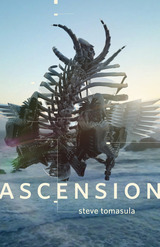
Ascension is a novel about the end of nature, or rather, the end of three “natures”: the time just before Darwin changed the natural world; the 1980s, just as the digital and genetic revolutions begin to replace “nature” with “environment”; and today, a time when we have the ability to manipulate nature at both the scale of the planet and at the genome. The narrative follows three different biologists on the brink of each of these cultural extinctions to explore how nature occupies our imaginations and how our imaginations bring the natural world, and our place in it, into existence.
Ascension is a story of how we continually remake the world and are in turn remade by the new nature we’ve created. It is the story of humans yearning to understand their families, themselves, and the world they live in as it comes to a close, leaving them to anticipate what will follow. Rich in visual depictions of the natural world—from nineteenth century engraving and paintings to twentieth century photography and twenty-first century databases—Ascension uses the materials of three eras to drive home our inability to escape nature, and the ways our fates are irrevocably bound together even as our actions usher in an end-time.
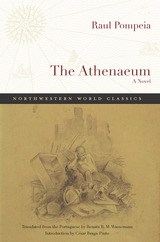
Originally published as O Ateneu in 1888, The Athenaeum is a classic of Brazilian literature, here translated into English in its entirety for the first time. The first-person narrator, Sergio, looks back to his time at the eponymous boarding school, with its autocratic principal and terrifying student body. Sergio’s account of his humiliating experiences as a student, with its frank discussion of corruption and homoerotic bullying, makes it clear that his school is structured and administered so as to reproduce the class divisions and power structure of the larger Brazilian society.
In its muckraking mode, the novel is in the spirit of Naturalism, imported from France and well-acclimated to Brazil, where it blossomed. At the same time, Pompéia maintains the novel’s credibility as a bildungsroman by portraying the narrator’s psychological development. The novel’s conclusion suggests both a doomed society and its possible redemption, indicative of a moment of upheaval and transition in Brazilian history.
READERS
Browse our collection.
PUBLISHERS
See BiblioVault's publisher services.
STUDENT SERVICES
Files for college accessibility offices.
UChicago Accessibility Resources
home | accessibility | search | about | contact us
BiblioVault ® 2001 - 2024
The University of Chicago Press









